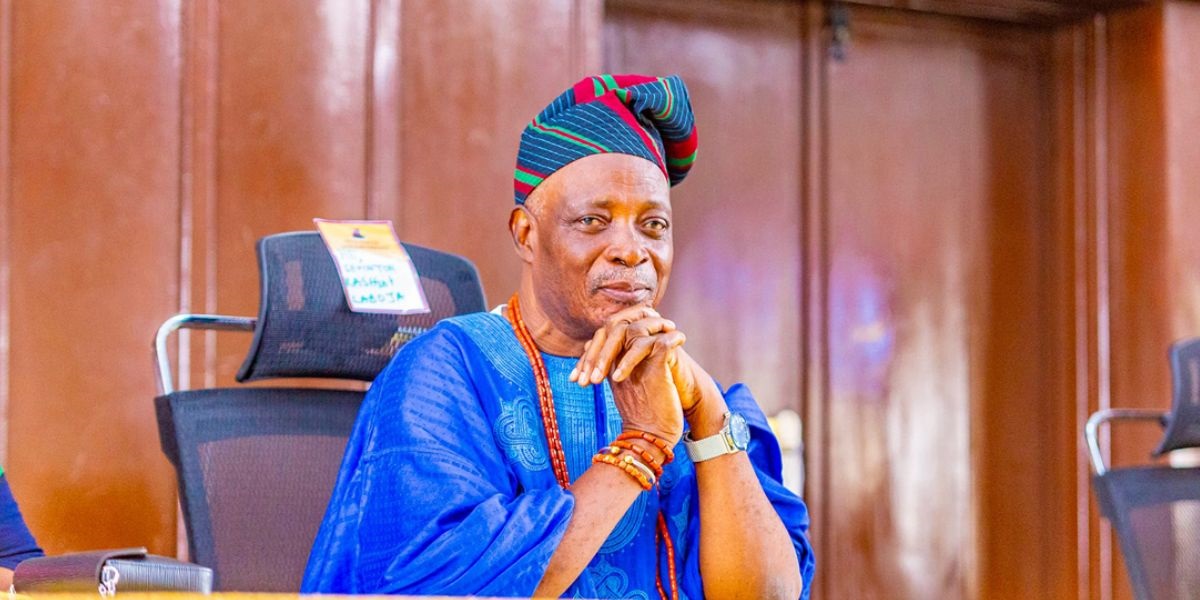The Attorney General of the Federation and Minister of Justice (AGF), Prince Lateef Fagbemi, has urged judges and lawyers in the country to strive to make a positive impact on the nation’s justice system.
He pleaded that as ministers in the temple of justice, judges and lawyers must ensure that Nigerians and others who deserve justice are not unjustly denied justice.
Fagbemi, a Senior Advocate of Nigeria (SAN), made the plea on Tuesday at a Valedictory Court Session in honour of the late Chief Judge of the Federal High Court, Justice Daniel Dantsoho Abutu.
Justice Abutu, who served as the 5th Chief Judge of the Federal High Court of Nigeria from September 4, 2009, to March 15, 2011, died on June 3, 2025.
At the valedictory Court session, Fagbemi, who was represented by the Director, Civil Appeal, Federal Ministry of Justice, Mr Tijani Gazali, SAN, called on stakeholders in the justice sector to make input to the ongoing reform initiatives of the federal government aimed at safeguarding rights and enabling socio-economic development.
The AGF said that the late Chief Judge would be fondly remembered for his boldness, fearlessness, and positive contributions to the country’s judiciary.
As we assemble to pay glowing tribute to celebrate the life and time of a dedicated, firm and quintessential Jurist, we are equally celebrating our nation and profession.
“His Lordship was renowned for his unwavering commitment to advancing the rule of law and the administration of justice. Under his watch, the Federal High Court made commendable progress and boldly asserted itself as a formidable temple of justice in Nigeria’s judicial architecture.
“The late erudite jurist not only contributed his quota in the sustenance of legal education and constitutional democracy, but his Lordship also shaped our jurisprudence as a courageous judge, patriot and true nationalist.
‘Justice Abutu’s rulings and judgments were always articulate, often reflecting his personal dexterity, mastery of the law and legal scholarship.
“His Lordship’s contributions to nation-building and social stability remain quite indelible and phenomenal. Sometime in 1998, the then military junta decided to scrap the Nigerian Law School, Lagos Campus and chose to alienate the premises upon the establishment of the Bwari Campus as the main and only Campus of the Nigerian Law School.
“In response, some eminent leaders of the Lagos Bar instituted SUIT NO. FHC/L/CS/92/99: Chief Emmanuel Ofulue & ANOR vs The Hon. Attorney General of the Federation and three others.
“Regardless of the opposition and determination of the military government to pursue that cause of action, His Lordship, on 3rd February 1999, issued an injunctive order restraining the Federal Government and its servants or privies from selling, alienating or otherwise parting with the possession of the Nigerian Law School Campus and appurtenances thereto in Lagos. While good reason later prevailed.
“n January 2010, while the nation was witnessing a tense constitutional crisis over the non-transmission of Presidential powers to the then-Vice President by the ailing late President, Hon. Justice Abutu was called upon to interpret Section 145 of the 1999 Constitution.
“His Lordship rendered concise decisions in a timely manner over multiple cases seeking to compel the President to transmit a written notification to the National Assembly. His Lordship doused the growing tension by interpreting Section 145 of the 1999 Constitution to mean that the President cannot be compelled to transmit the notice, that is, the President cannot be compelled to surrender or abdicate Presidential powers without following procedures set out in the Constitution.
“The National Assembly subsequently built on this foundation by making the historic invocation of the doctrine of necessity through which the Acting President was conferred with full powers of the President and Commander-in-Chief.”
On his part, the Chief Judge (CJ) of the Federal High Court, Justice John Tsoho, described the late former Chief Judge as an impartial judge who left behind a legacy of extreme humility.
According to Justice Tsoho, Abutu lived a private but profoundly impactful life and has left a lasting legacy of extreme humility, joviality, kindness, and compassion, always willing to extend a helping hand.
The Chief Judge also said that the late Abutu’s tenure as Chief Judge may have been short, but it was very eventful.
“He presided over several cases where his impartiality, wisdom and unwavering commitment to the law were brought to the fore.
“He navigated complex legal issues with clarity and fairness, earning the respect and admiration of his colleagues, lawyers, litigants and staff of the court.
“He ensured that the court family was kept united and focused, and it was during his tenure that the Lokoja judicial division was opened,” Justice Tsoho said.






